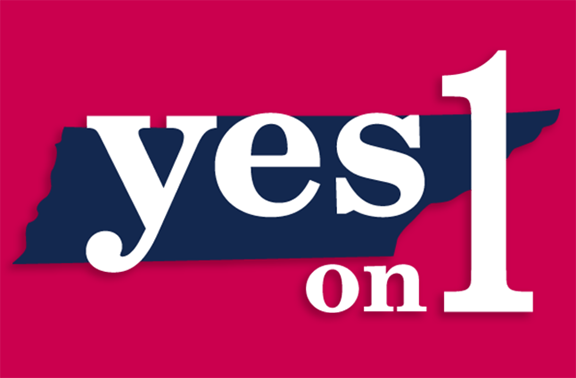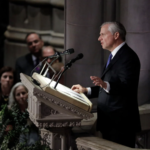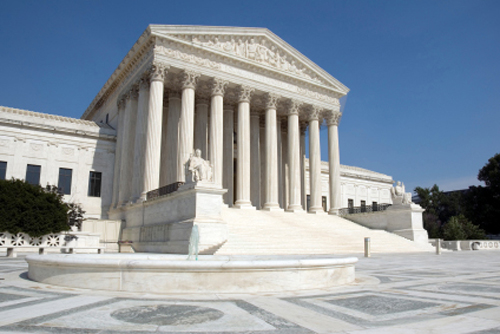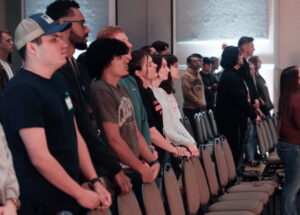
NASHVILLE (BP) — “Absurd” is how state election officials are describing a legal challenge to the success of Amendment 1 in Tennessee, a constitutional provision that allows lawmakers to regulate how and where abortions are performed in the state.
Amendment 1 passed in Nov. 4 mid-term elections with 52.6 percent of the vote. Days later, eight pro-choice advocates filed suit in federal district court challenging the results, contending the votes were tabulated incorrectly.
 Lead plaintiff is Tracey E. George, chairman of the board of Planned Parenthood of Middle and East Tennessee. But George has said the suit is not a Planned Parenthood initiative.
Lead plaintiff is Tracey E. George, chairman of the board of Planned Parenthood of Middle and East Tennessee. But George has said the suit is not a Planned Parenthood initiative.
“Planned Parenthood is not funding the lawsuit, and were not happy when they did not get a heads-up about what we were doing,” George told the Nashville Tennessean newspaper. “These folks are people I know who were willing to make the sacrifice to be a plaintiff.”
George is director of the Cecil D. Branstetter Litigation and Dispute Resolution Program at Vanderbilt University, and plaintiffs’ attorneys include Bill Harbison, president-elect of the Tennessee Bar Association, Dewey and Hunter Branstetter, and Phillip Cramer.
According to Article XI, Section 3 of the Tennessee constitution, proposed amendments to the constitution can only pass by obtaining more than half of the votes cast in the governor’s race. “And if the people shall approve and ratify such amendment or amendments by a majority of all the citizens of the state voting for governor, voting in their favor, such amendment or amendments shall become a part of this Constitution,” the constitution reads.
Plaintiffs in the suit contend that, according to the constitution, votes for the amendment are only valid if those voting for it also cast a vote in the governor’s race.
That’s not true, state elections officials told the Nashville Tennessean newspaper. Secretary of State Tre Hargett said the state has never counted votes the way the plaintiffs insist.
“I’m not sure why they filed this in federal court,” Secretary of State Tre Hargett told the Tennessean. “People have the right to vote or not vote in the governor’s race. It does not make sense any other way.”
The plaintiffs charge that proponents of Amendment 1 encouraged supporters to skip voting in the governor’s race and vote for the amendment, to improve the amendment’s chance of passage. A total of 32,570 more votes were cast in the amendment race than in the gubernatorial race. According to the plaintiff, those votes should not be counted, because the voters did not participate in the gubernatorial race.
Mark Goins, Tennessee coordinator of elections and a defender in the case, said there is no system in place to count votes the way the plaintiffs insist.
“It is absurd, not a normal argument,” The Tennessean quoted Goins. “We have to audit every voting machine across the state, and visibly look to see whether we can. If we can, we have to do a hand count of every ballot.”
The amendment won by more than 70,000 votes, with an exact count of 728,751 to 656,427. Votes cast in the gubernatorial race totaled 1,352,608. Based on the participation in the governor’s race, the amendment needed only 676,305 affirmative votes to win, according to the Secretary of State’s office.
The U.S. District Court in Nashville is set to receive the first hearing in the case on Jan. 12, 2015, according to the Tennessean.
–30–
Compiled by Diana Chandler, General Assignment Writer/Editor for Baptist Press, the Southern Baptist Convention’s news service. BP reports on missions, ministry and witness advanced through the Cooperative Program and on news related to Southern Baptists’ concerns nationally and globally.
Get Baptist Press headlines and breaking news on Twitter (@BaptistPress), Facebook (Facebook.com/BaptistPress) and in your email (baptistpress.com/SubscribeBP).



















